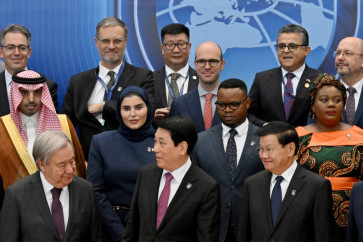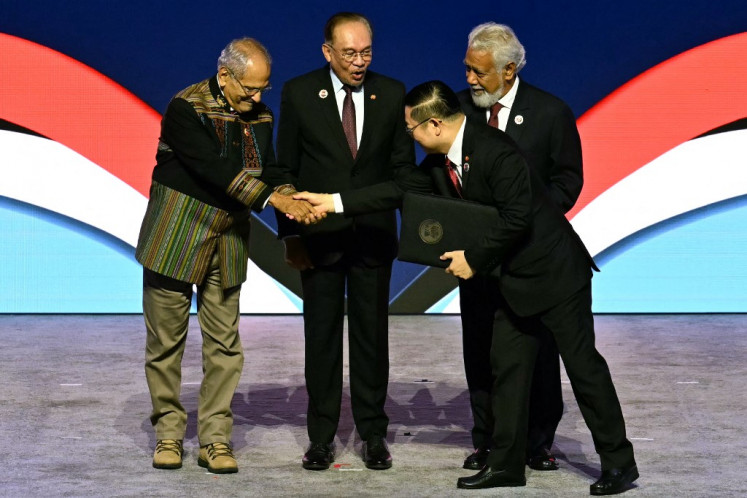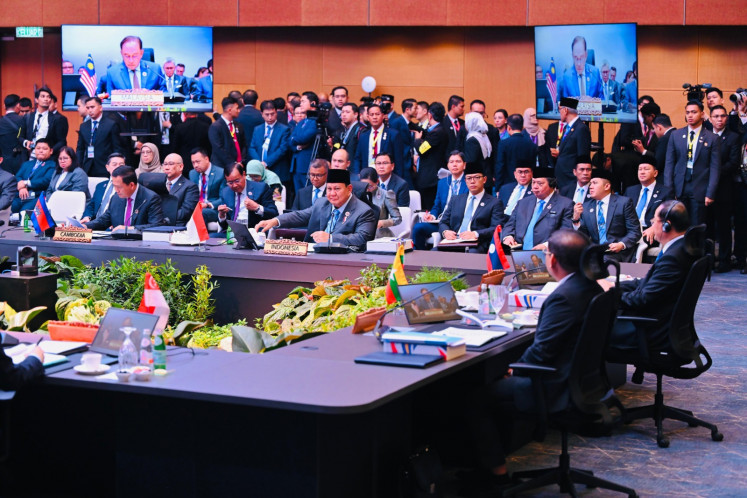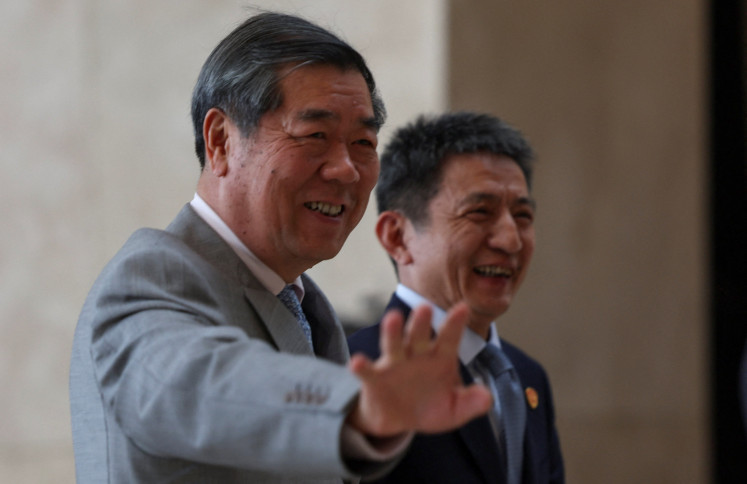Popular Reads
Top Results
Can't find what you're looking for?
View all search resultsPopular Reads
Top Results
Can't find what you're looking for?
View all search resultsEssay: Intellectuals, demystified
In spite of the allure of the “intellectual mystique,” you must remember that they are human beings with common flaws.
Change text size
Gift Premium Articles
to Anyone
“What a disappointment to know that our intellectual role models are not as good as the rhetoric they present through their writings and speeches,” Maria (not her real name), an intelligent young woman, told me while we were in a cab a while ago.
When we speak of “intellectuals,” we mean people who translate their intellectual vision into art, literary and journalistic work as well as activism. We both lamented how the Indonesian intellectuals that we admire do not seem to “walk the talk” and live up to their ideological aspirations.
I have heard stories about a “very popular” female activist (just one case among many) who had to endure being battered by her husband while keeping it all under wraps because she considered it to be shameful. On the opposite side of the same coin, there are stories about many men who, upon doing great things to free the human soul and liberate the human mind, would come home and attack their wives.
Isn’t it ironic that these people, for whom the fight against violence and for human dignity has become core to their activism, are intimately tied to violent acts in their own day-to-day lives?
Sexual harassment is yet another issue. We know very well stories about prominent writers or artists who have abused their privileged position in order to exploit women sexually. Some have even been implicated in rape cases.
Young writer Eliza Vitri Handayani writes a passionate essay on magdalene.coabout being a writer while young and female in Indonesia about these hidung belang (predatory) senior male writers/artists and how they turn women, particularly those who are aspiring writers, into mere sexual objects.
Aggression and sexual crime is one thing; arrogance is another. Many people have complained about being treated harshly by members of the intellectual elite, many of whom have an enduring sense of intellectual and moral superiority, thereby leading them to a disgusting aura of self-righteousness.
A friend of mine, for instance, left a feminist organization she used to work for after a terrible experience of working with a prominent feminist who called her stupid because she disagreed with this prominent scholar on one of feminism’s core tenets. My friend felt hurt by the word stupid used by her colleague.
While feminism definitely has its noble values, “It is almost as if they spew out all the rhetoric on feminism just to show that they are intellectually superior,” my friend told me. Other journalist friends of mine have told me about being scolded publicly or yelled at by these prominent figures during an interview when the latter happened to be in a bad mood.
Speaking about bad mood, another friend spoke to me about being ignored by a senior writer during a closed-circle discussion and, when he politely said goodbye to the circle because he had to perform a religious ritual, the female writer barked loudly and said “why do you have to ask my permission to conduct your ritual? I have no interest in keeping you away from your God!”
And the list of incidents goes on. Maybe Turkish writer Orhan Pamuk is right when he wrote in his 2002 novel Snow that the benefit of having the status as an intellectual was the entitlement to “treat people like shit” as a result of one’s intellectual superiority. I begin to wonder, though: does a high IQ correlate with the tendency to become arrogant?
Maybe the blame lies not in a high IQ but the social status that earns the intellectual elite some sort of privilege. According to an Italian scholar, Antonio Gramsci, every individual who thinks can be defined as an intellectual. Thanks to our feudalistic society, the ones who gain superior status in society in the end are the ones who are imbued with the bourgeois stream of thoughts proposing freedom and equality above all.
This concept then gets intertwined with the division of labor: in a society where intellectual labor is considered more worthy than physical labor, guess who sits on top of the social pyramid?
You bet.
Furthermore, scholar Franz Magnis-Suseno writes in his introduction to the Indonesian translation of Edward Said’s book Representation of the intellectual ( 1994 ) that intellectuals have a more privileged status in quasi-democratic societies like Indonesia. In quasi-democratic societies, politicians are afraid to convey oppositional views openly, so society relies on intellectuals who can disguise their oppositional views in an articulate manner through abstract concepts so their opposition can seem pretty benign and less threatening to those in power.
Magnis-Suseno argues that this is why in Indonesia — as in other quasi-democratic societies — intellectuals (writers, activists, scholars and artists) are often quoted in newspapers and other media outlets. They have been turned into celebrities, if you will. He says that no such phenomenon is observed in Germany, for example.
This double role as both an intellectual and celebrity further instills a sense of superiority and power among some of our intellectuals. They elicit mixed responses from the masses in Indonesia. Some people have turned them into individual cults and admire them with such fervor as hippies reserved for various American rock bands in the 1960s.
Others, the sour grapes, have become envious and instead of admiring more famous and prominent intellectuals, have chosen to lambast them, whether for the way they do not live up to their ideals or the rhetoric that is nothing more than empty words. I have one acquaintance, a senior journalist who, frustrated by the writer’s block she was going through, started to mean-spiritedly criticize the works of her more successful contemporaries. A sour grape she was.
The intellectuals become further removed from real people, like the old idea of the monarchy. Some of them enjoy the removal; it is power. They continue to alienate people with their arrogance and sense of superiority. No wonder in Indonesia many people have chosen to walk the path of religious conservatism instead: the intellectuals also have their share of blame in this. When was the last time they engaged with the common folk and spread their progressive thoughts around?
It is a good thing that some of our intellectuals, like the writer Okky Madasari for instance, have attempted to reach out to the grassroots community through her Sastra Masuk Kampung (Literature goes to the suburbs) initiative and popularize literature among a wider public. Writer Lily Yulianti Farid has engaged in a similar initiative working with young people through the Makassar International Writers Festival.
Read also: Lily Yulianti Farid: For the love of writing
More and more such activities where senior intellectuals engage with their juniors as well as the public flourish now, and I am glad. These activities help plant the seeds of progress for Indonesia, not just in terms of economic ventures but also its human capital, while adhering to the principles of universal human rights and social justice.
I believe that intellectuals do play a role in moving civilization forward. On the other hand, however, in spite of the allure of the “intellectual mystique,” you must remember that they are human beings with common flaws. This realization will save you from disillusionment next time your idolized writer or artist or activist treats you badly.











